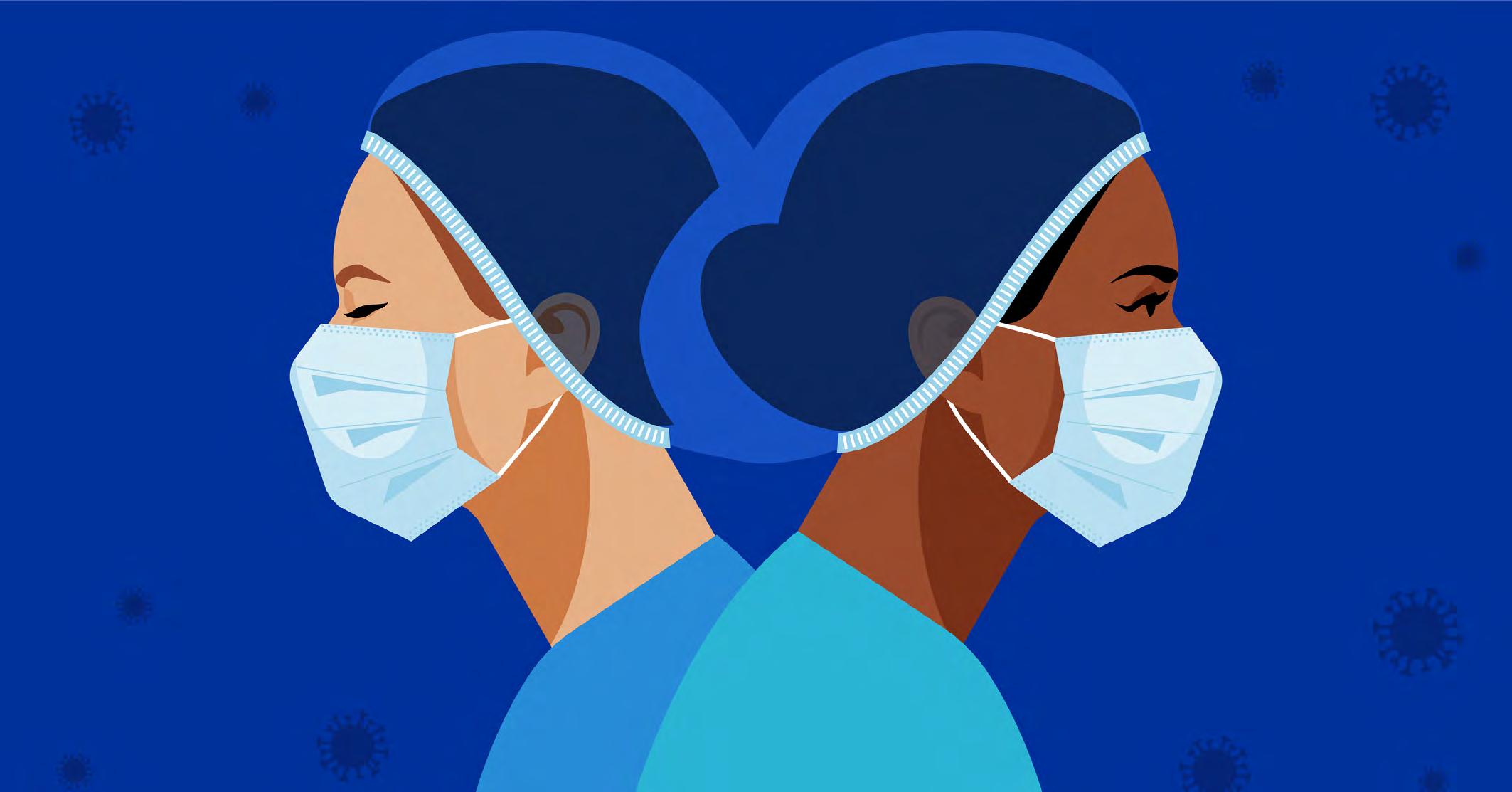
3 minute read
Why more girls should become surgeons
The world is made up of all types of people. Some are doctors, some librarians, some engineers, some are nurses … the list goes on. I want to encourage girls to consider becoming surgeons. According to a research conducted by the Australasian Students' Surgical Association in 2020, women represent 11 per cent of consultant surgeons and about 13 per cent of surgeons in Australia. Considering women make up over half of Australia’s population, these numbers aren’t anywhere near as representative of the population as they could and should be. The sentiment or belief , ‘You can’t be what you can’t see’, is true to an extent. If girls— early on in their education—saw female surgeons, doctors or scientists in their worlds, following those career paths would seem well within their reach if they were interested. Girls need to know that these careers are real possibilities for them. I want girls to give themselves the opportunity to find out whether they are passionate about surgery. It can start with a tiny interest, an inkling that they could be good at it, or a little tug on their insides that makes them wonder if they, too, could be a surgeon. Some time ago I spoke to high school students at a careers evening as an old scholar. It was a new experience for me, and one that I thoroughly enjoyed because I was speaking to young people about a career that I truly love and have never deviated from. My father is a general practitioner and my interest in medicine was sparked because of him. I have always been around that environment so maybe it was inevitable that I would choose medicine at university. Watching the 1991 film The Doctor clinched the deal for me though! In medical school I didn’t waver on my decision to become a surgeon, even though I was told by non-surgical colleagues that surgery was not a suitable career for women. Apparently, surgery wasn’t family friendly, and women would find it hard to start a family and continue their surgical training—or so I was told. It doesn’t matter what job you do, there will always be tension when it comes to starting a family, taking parental leave, and returning to work. The Royal Australasian College of Surgeons has long been advocating for surgical Trainees to have flexible training roles. Many hospitals and surgical specialties are supportive of this. After becoming a Fellow and a consultant, you make your own hours, giving you more time to spend with your family. I was fortunate to have many supportive mentors and colleagues during my surgical training. Only one of my medical registrars thought I wouldn’t make it as a surgeon because I am a woman, and of Asian descent. How wrong he was! I always say to young people that they should surround themselves with people who are honest and trustworthy, and who know what you are capable of. Take critical feedback and advice as it comes—if you respect the person it comes from. If you have ever thought, ‘Hey, I think I’d like to become a doctor, or a surgeon, and help people,’ then I want you to consider doing a few practical things. Look at university course prerequisites for undergraduate medicine courses. You can also explore undergraduate courses that lead to postgraduate medicine. Speak to your science teacher and find out what subjects you need to be doing to make sure medicine is an option for you in university. When you complete your medical degree, do as many training terms in surgery as you can get to experience the different aspects of surgery. Seek out mentors who will help you and give you advice and guidance. The world is made up of all types of people. You could be a surgeon in the world if you want to. You will never know if you can do it if you don’t try.
Dr Christine Lai
Advertisement










